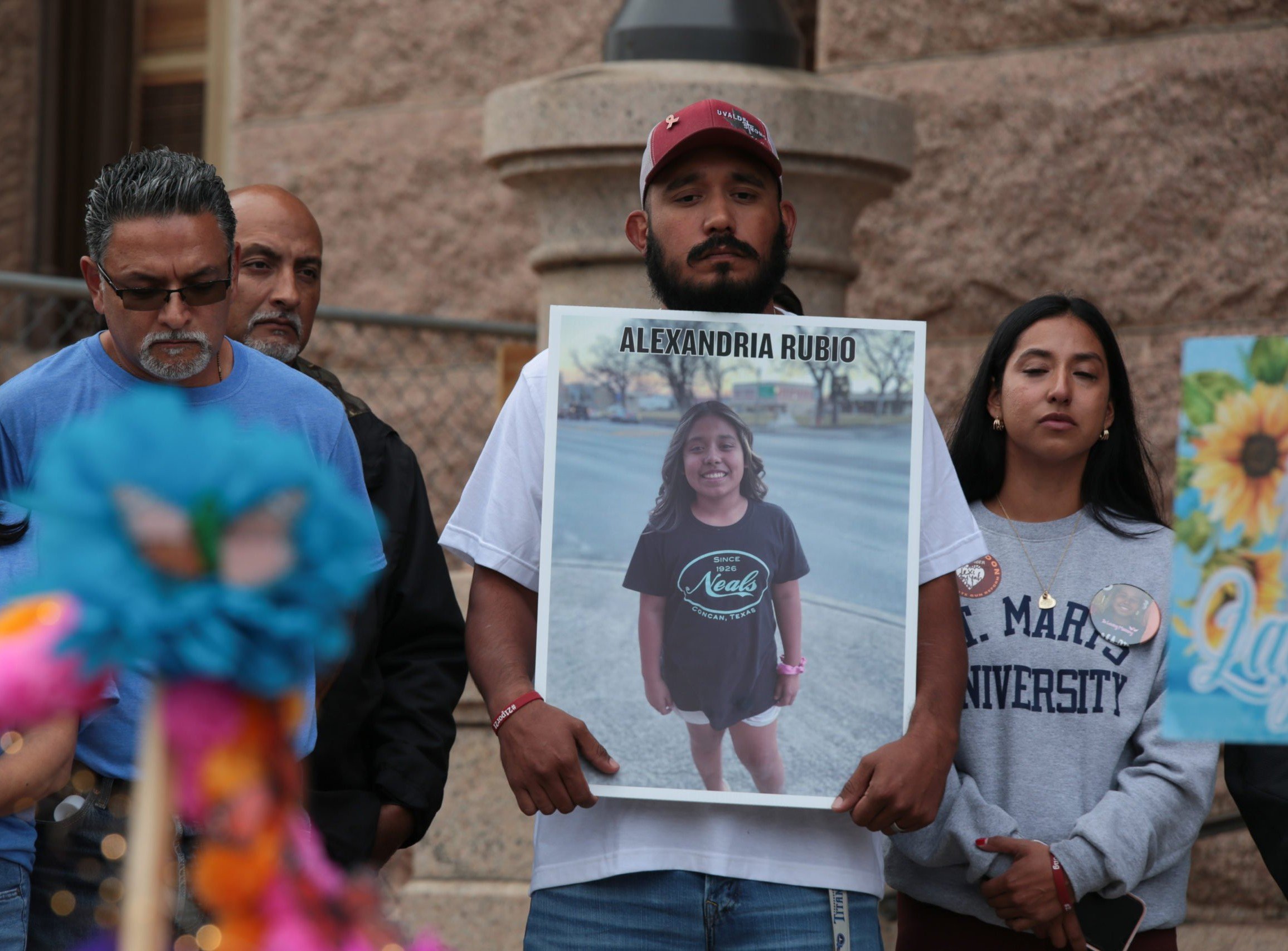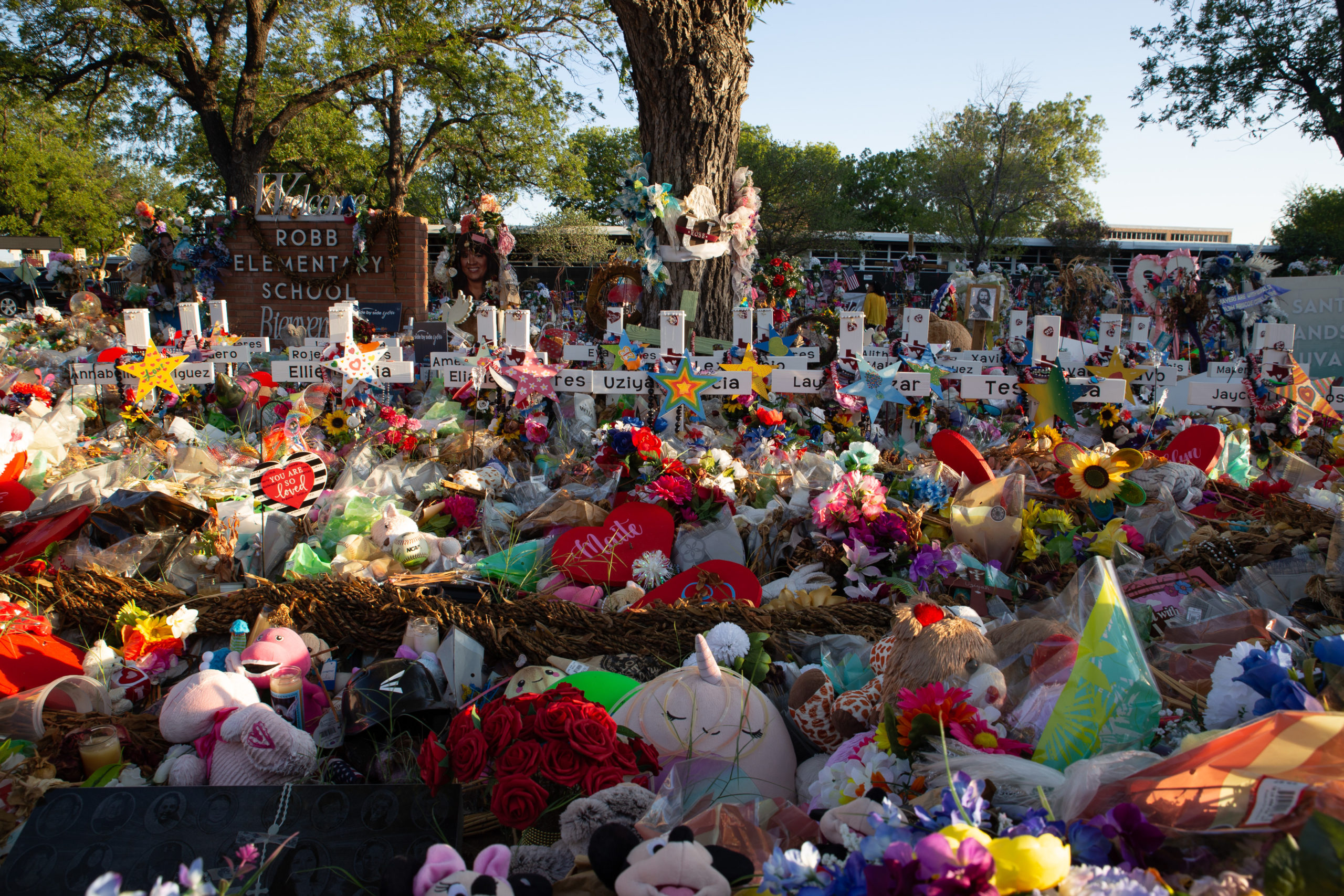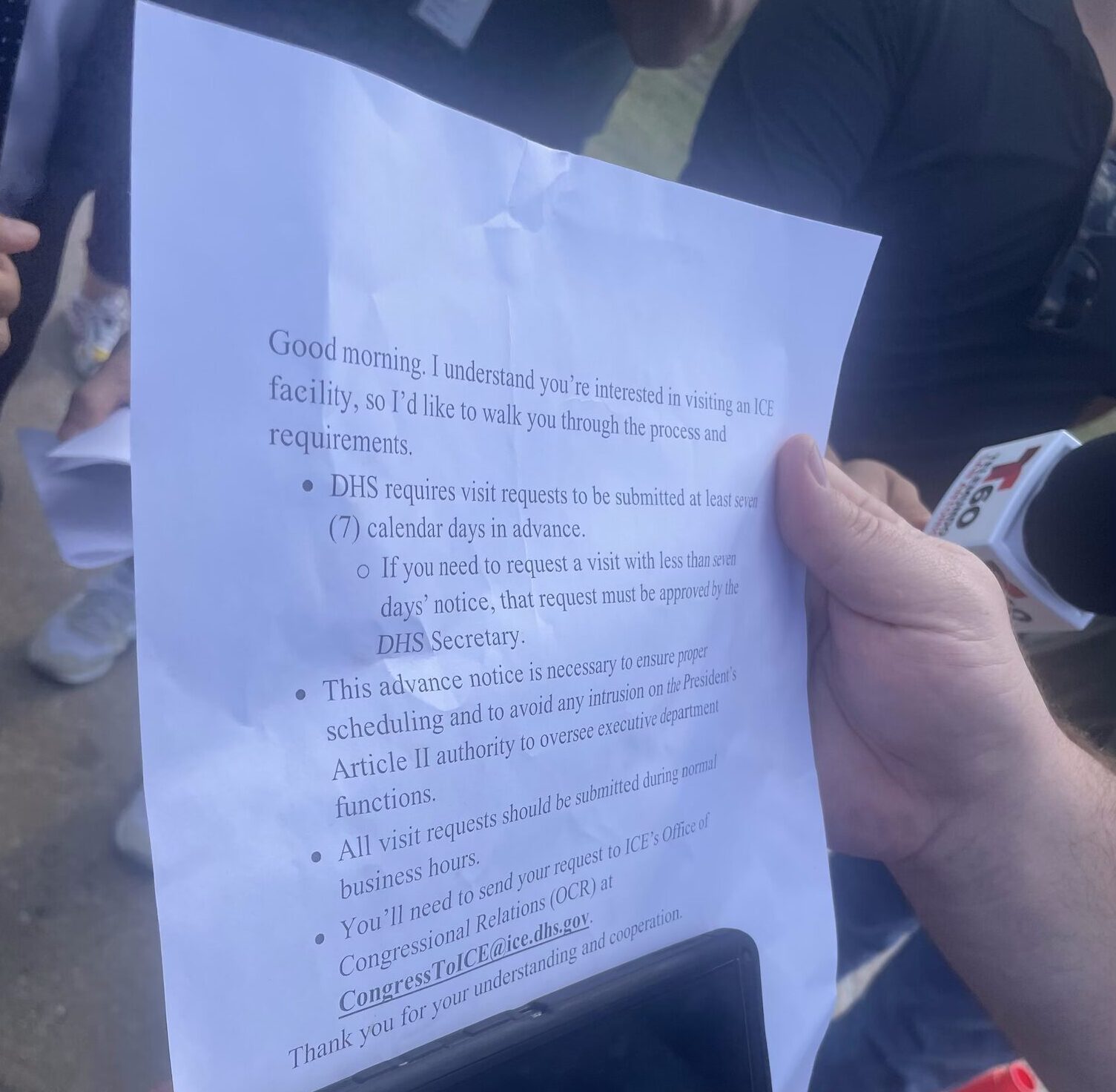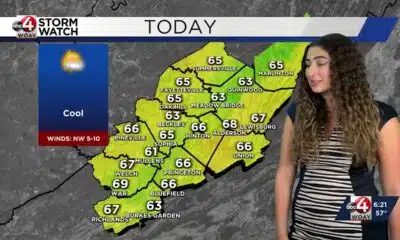News from the South - Texas News Feed
Three Years Later, an Uncle in Uvalde Searches for Solutions on School Board
Three long years ago, in a southwest Texas town now almost synonymous with the tragedy, something happened in an elementary school so horrifying that it nearly defied meaning altogether, challenging any sense of a guiding plan or greater judiciousness in human affairs. Nineteen children. And two teachers. Gone. Uvalde—a place name to be forever followed by a fraught pause.
What was stunning then, and stunning still, was the almost-immediate insistence on meaning from the families who lost their children. Parents, siblings, tíos, and grandparents suddenly coalesced to push for accountability from both school district leaders and the myriad police agencies whose outrageously disorganized response exacerbated the disaster, and to push for gun control measures that could prevent such a threat to other parents’ children in the first place.
Among that coalition of the bereaved was Jesse Rizo, an uncle who lost his niece, 9-year-old Jackie Cazares. Rizo became a regular at local government meetings, exacting in his calls for justice yet calm in his delivery, along with Cazares’ immediate family members and many other leaders. Last May, Rizo was elected to the Uvalde CISD school board, one target of the families’ diverse demands.

Still employed as an AT&T customer service technician (the school board position is unpaid), the 54-year-old Rizo grew up in a family of farmworkers in Batesville, some 20 minutes southeast of Uvalde. He left for Austin as a young man, where he graduated from St. Edward’s University, before eventually coming back home.
Three years since the massacre, Rizo sees some positive change: Public officials and school administrators have, for varying reasons, turned over. And he sees family members reengaging with the district. They signed the final beam of a new school building that, in a different location, replaces the shuttered Robb Elementary building where the shooting happened, and Jackie’s older sister Jazmin, for example, recently appeared in a video with the current superintendent. At the same time, Rizo remains outraged that the local district attorney’s prolonged investigation led to only two police officers facing criminal charges for the shooting response, and he eagerly awaits their trials and the further transparency they might bring.
The Observer spoke with Rizo about leadership, anger, and what can still be done.
TO: When did you decide to run for school board and why?
The massacre highlighted a lot of, I call them areas of opportunity, and when it really dawned on me was when we were at one of the meetings at the auditorium. And I’ll never forget going up there, and I was not a public speaker at all. I was kind of intimidated by the thought of even having to do it. But I remember going up there and questioning the board and questioning [former superintendent Hal Harrell], asking him, basically, what are your plans? … And he had this look about him, and I knew right then and there that there were no policies, that there were no procedures in place for anything remotely close to this. Like, man, they don’t have it together. And so that was the first time that I thought, there’s no way that they’re gonna survive this one, that they [the school board] needed the help.
You were part of a group that obviously felt a lot of anger at the school board. But you felt like you wanted to help.
I learned a long time ago that you can’t come with problems without solutions. You have to come to the table with ideas, and so that was part of it.
Man, when I would get up to talk, I would always ask God that he would send the children’s voices through me. In other words, let their words be spoken through me. How would they handle it, right? Then I knew what I needed to say, and a lot of times I didn’t even have notes.
Thinking back, the last year on the board, what’s been the most rewarding thing you’ve been able to do? And what’s been the most frustrating thing?
The most rewarding thing, there’s a multitude of things, but being able to provide a voice for the people that are either afraid or too shy, that want to say things but they just don’t have the courage. And the other part of that, being able to hold each other accountable, and what I mean by that is, the most important thing that you have is the child, right? The children that go to school at all ages. The learning, the safety, being a role model to them, to empower them and to say, you too can speak out.
As far as the challenging part, it’s understanding the language of the school, the acronyms. I understand the philosophy, I understand the methods, but when you get to the nuts and bolts of how things work on a day-to-day basis, that’s a big learning curve. And so how do you tackle that? I’ve been fortunate enough that they’ve asked me to be part of advisory committees. And I go to as many meetings and campuses that I can and I meet with staff and I just sit there and I have lunch with them or I just listen and listen and absorb as much as I can so that when I’m faced with those decision-making things, I’m gonna make a well-educated decision.
A little more big-picture, we’re approaching the three-year mark since the Robb shooting. I know you can’t speak for everybody, but how do you think the families are doing, and how do you think Uvalde as a whole is doing?
As far as the families are concerned, you know, things are still difficult. But I think that we’re trying to make sure that we honor their children, that we honor the teachers, and that we honor the survivors from a school standpoint.
One of the things, I’ll speak to this, man, one of the things where you start seeing the train turn a little, is Felicha Martinez and Abel Lopez [who lost 10-year-old Xavier Lopez], they’ve been volunteering [with a school district food distribution program and Thanksgiving event]. And at the meetings, I’ll never forget, you know, her emotions, especially her, and now several years later she’s giving back to the community, both of them. And if that’s not a testimony of something turning around, I don’t know what is.
You had said at some point, “We used to be a close community. Now it’s like we don’t know each other anymore.” Do you not feel that way anymore?
I think that we’re beginning to rebuild and come back together. And, not too long ago, I kind of analyzed, like, how is it that this is happening? And it took a lot of work. It took a new superintendent. It took a new board. The old chief of police is gone, assistant chief is gone. You have a new city council. You have a new mayor. And everybody, when you go to these meetings, you hear the word transparency, you hear the word accountability, and so everybody’s practicing what they’re preaching, and so we hold each other to that. So it’s mending.

In general, what measures of accountability are you still closely watching and waiting for?
The [former UCISD Police Chief Pete] Arredondo and [former UCISD officer Adrian] Gonzales trial that’s coming up—and that the community, just like the rest of the world, sees and acknowledges the absolute failure of the different law enforcement responses. You can only do so much as far as accountability legally. And that is the only two individuals that were charged with anything—[which is] beyond comprehension. I mean, there should have been so many others that were also held accountable, prosecuted. But I’m hoping that these two individuals will be held accountable, whether it’s a prison sentence or some type of discipline.
What happened three years ago really affected, I would say, millions of people, because it was basically one of the worst incidents in modern American history. Is there still anything for people who don’t live there to do to support the families or to support Uvalde as a community?
Definitely. I think exercising something that doesn’t cost any money—and that’s love and compassion. You know, whether it’s through social media or you see them on TV or you run into them anywhere. Just a simple gesture, let the families know that you’re with them and you think about them. To me that’s really important. As far as the gun issue, to me it’s awareness, be aware of your surroundings, be aware of your loved ones, if you see that they’re troubled or whatever don’t just ignore it, don’t let it build up.
You should not allow these kids and the teachers to die in vain. There’s gotta be something that comes out of it. And whether it’s just basic awareness or it mobilizes you or it engages you, you become engaged in some kind of movement, you have to follow your instinct. You have to follow what you think is right, so that somebody else, some other community, some other family member, doesn’t have to go through this. Because it does turn the town inside-out.
This interview has been edited for length and clarity.
The post Three Years Later, an Uncle in Uvalde Searches for Solutions on School Board appeared first on www.texasobserver.org
Note: The following A.I. based commentary is not part of the original article, reproduced above, but is offered in the hopes that it will promote greater media literacy and critical thinking, by making any potential bias more visible to the reader –Staff Editor.
Political Bias Rating: Center-Left
This content focuses on the aftermath of the Uvalde school shooting, emphasizing calls for accountability from public officials and law enforcement, as well as advocacy for gun control measures. It highlights the perspective of a community leader pushing for reform and vigilance, with criticism aimed at authorities for inadequate response and limited legal consequences. The narrative aligns with concerns typically raised by center-left viewpoints, promoting governmental responsibility, community activism, and gun violence prevention, while maintaining a respectful and solution-oriented tone without overt partisanship or extreme rhetoric.
News from the South - Texas News Feed
'Bathroom bill' advances in Texas House days after tensions flared at hearing
SUMMARY: A Texas House panel approved Senate Bill 8, limiting transgender people’s use of bathrooms in government buildings, marking the first House advancement of a “bathroom bill” in over eight years. The bill, backed by Gov. Greg Abbott, passed 9-3 in committee and now heads to the House floor. SB 8 imposes penalties on institutions allowing restroom use not matching sex assigned at birth and extends restrictions to schools, universities, shelters, prisons, and jails. Opponents warn it promotes harassment and violence, while supporters cite protection of women and children. The bill includes measures to shield it from legal challenges. Lawmakers must pass bills by Sept. 13.
The post 'Bathroom bill' advances in Texas House days after tensions flared at hearing appeared first on www.kxan.com
News from the South - Texas News Feed
Texas House Republicans vote against retroactive punishments for quorum breakers
SUMMARY: A week after Texas House Democrats fled to block Republicans’ redistricting vote on the “Big, Beautiful Map,” Republicans are pushing bills to punish or prevent future quorum breaks. Proposed measures include banning fundraising during quorum breaks, vacating seats after seven unexcused absences, and lowering the quorum threshold from two-thirds to a simple majority. While Republicans support these bills, they failed to censure the Democrats. Democrats face fines exceeding $9,000 each for their absence, including costs for Texas DPS efforts to return them. Additionally, a Senate proposal aims to ban fundraising during special sessions to deter quorum breaks and save taxpayer money.
Read the full article
The post Texas House Republicans vote against retroactive punishments for quorum breakers appeared first on www.kxan.com
News from the South - Texas News Feed
Dems in Congress Are Being Denied Access to ICE Facilities. Now They’re Suing.
At least a dozen Democratic members of Congress have been denied entry to federal immigration facilities this year when they showed up to conduct oversight as President Donald Trump has ramped up his mass deportation efforts. Now, they are suing the Trump administration.
The lawsuit was filed in the federal district court for the District of Columbia on July 30 by 12 Democrats from the House of Representatives, including El Paso Congresswoman Veronica Escobar, who has provided oversight of such facilities for several years.
“As part of its campaign of mass deportation, the Trump-Vance administration has stretched the U.S. immigration detention system far beyond its capacity. More people are being held by the United States in immigration detention than ever before, with many facilities housing more individuals than they were built to contain,” the lawsuit states. “Reports of mistreatment have been widespread and have included disturbing details of overcrowding, food shortages, lack of adequate medical care, and unsanitary conditions.”
Since 2019, Congress has adopted statutory provisions stating that the Department of Homeland Security (DHS) may not use federal funds may to prevent members “from entering, for the purpose of conducting oversight, any facility operated by or for the Department of Homeland Security used to detain or otherwise house” noncitizens, per the lawsuit. Those mandates for unfettered oversight were a direct response to Trump’s attempts to block members of Congress under his first administration.
However, since June, several members of Congress have been turned away when attempting to enter and examine federal immigration facilities, including privately run detention centers and ICE field offices where immigrants have been detained.
Escobar currently serves on the House Appropriations Committee and its Subcommittee on Homeland Security, which oversees DHS. In her six years serving Congress, she and her staff members have conducted numerous visits to DHS facilities, and identified issues that saved taxpayers money or improved facility conditions for detainees. Prior to this year, she had only been turned away once, in 2019, from a facility when attempting to conduct oversight.
“It is not acceptable for the Trump administration to ignore the law and limit Congressional oversight and authority; this cannot go unchallenged,” Escobar said in a statement announcing the lawsuit.
U.S. Representative Greg Casar, an Austin Democrat, is among the latest members of Congress to be turned away when requesting to conduct oversight. On August 15, Casar attempted to access the Don T. Hutto Detention Center in Taylor, which is operated by DHS contractor CoreCivic, after receiving complaints that the air conditioning was not functioning properly and that detainees were “boiling.” The congressman, along with Austin-based attorney Andrea Jarero, who was trying to visit a client, were both denied access by CoreCivic.
When journalists, activists, Casar and his staff arrived at the detention facility, CoreCivic employees had blocked off access to the building’s parking lot with traffic cones and two white vans. A CoreCivic employee exited his vehicle and told Casar he’d need to schedule any visits at least seven days in advance. “This advance notice is necessary to ensure proper scheduling and to avoid any intrusion on the President’s Article II authority to oversee executive department functions,” the employee said, reading from a piece of paper.
The statutory provisions of recent DHS appropriations bills explicitly say that they may not “be construed to require a Member of Congress to provide prior notice of the intent to enter a [DHS] facility.” However, per the lawsuit, the Trump administration has unilaterally enacted a new policy that requires seven calendar days’ notice ahead of any visit to a DHS facility.
“What are they hiding, if they will break the law and not let a member of Congress in?” Casar said. “What are they hiding if they’ll violate constitutional rights and not let a lawyer in?”
Casar said that he intends to join his fellow Democratic members of Congress as a plaintiff in the lawsuit—though he has not done so yet.

Texas has the largest immigration detention capacity in the country, putting the state on the front lines of Trump’s mass deportation agenda. As of early August, more than 13,000 immigrants were detained in Texas facilities, according to data from the Transactional Records Access Clearinghouse (TRAC)—far more than any other state. That number will likely continue to grow: a new, $1.24-billion immigrant detention camp opened last week on Fort Bliss, a military base in El Paso, and is poised to be the nation’s largest once it reaches its full capacity to hold 5,000 people. (Escobar was allowed to access that facility on August 18 and said it held 1,000 detainees at that time, though she was not able to speak to any.)
Recent events bring new urgency to immigrant detention inspections: As of late June, 13 people had died in ICE detention this fiscal year—which is the same amount of deaths for the entirety of fiscal year 2024. (A report from several advocacy groups found that dozens of deaths between 2017 and 2021 in ICE detention facilities could have been prevented with adequate medical care.)
Additionally, more people are detained in ICE custody than ever before, and that number will likely continue to grow. The agency is also set to receive historic levels of funding; HR 1, Congress’ recent tax cuts-and-spending bill, contains $75 billion for ICE detention and removal operations.
As spending ramps up, oversight mechanisms have been stifled. Earlier this year, the Trump administration gutted some of the entities tasked with facility oversight, including the Office of the Immigration Detention Ombudsman. Escobar, the El Paso Democratic House member, said oversight is supposed to be multi-layered, but now “Trump has effectively done away with government watchdogs,” she told the Texas Observer.
Since the other agencies tasked with holding DHS accountable in detention centers have had major staff cuts, the role of members of Congress in conducting oversight of immigration detention is more important than ever, she said.
“There’s absolutely no reason for [DHS Secretary] Kristi Noem to block members of Congress from our legal ability to enter a facility unannounced,” Escobar said. “Unless she believes she has something to hide.”
The post Dems in Congress Are Being Denied Access to ICE Facilities. Now They’re Suing. appeared first on www.texasobserver.org
Note: The following A.I. based commentary is not part of the original article, reproduced above, but is offered in the hopes that it will promote greater media literacy and critical thinking, by making any potential bias more visible to the reader –Staff Editor.
Political Bias Rating: Center-Left
The content primarily focuses on criticism of the Trump administration’s immigration policies and their handling of oversight for immigration detention facilities. It highlights Democratic lawmakers’ efforts to conduct oversight and challenge restrictions imposed by the administration, emphasizing issues such as overcrowding, inadequate medical care, and detainee mistreatment. The piece also underscores government watchdog reductions under Trump and conveys skepticism toward officials enforcing access restrictions. While it presents factual information and quotes from Democratic representatives, the overall tone and framing favor a progressive viewpoint critical of conservative immigration enforcement, aligning it with a center-left bias.
-
News from the South - Alabama News Feed7 days ago
U.S. agriculture secretary announces end to subsidies for solar panels on farmland
-
News from the South - Kentucky News Feed6 days ago
First of its kind clinical trial offers new hope for Kentuckians at risk of dementia
-
News from the South - Arkansas News Feed7 days ago
Cities across the US are embracing AI guidelines for local government workers
-
News from the South - Georgia News Feed7 days ago
Don't eat this shrimp sold at Walmart due to possible radiation contamination: FDA
-
News from the South - Alabama News Feed6 days ago
Grants to boost local emergency alert systems in question as public media agency closes
-
News from the South - Arkansas News Feed6 days ago
‘Alligator Alcatraz’ probed by Dems as ICE detention centers multiply in states
-
Our Mississippi Home6 days ago
MSU Unveils Mixed-Use Development Featuring Boutique Hotel, Cultural Landmark
-
News from the South - Arkansas News Feed5 days ago
New I-55 bridge between Arkansas, Tennessee named after region’s three ‘Kings’











































